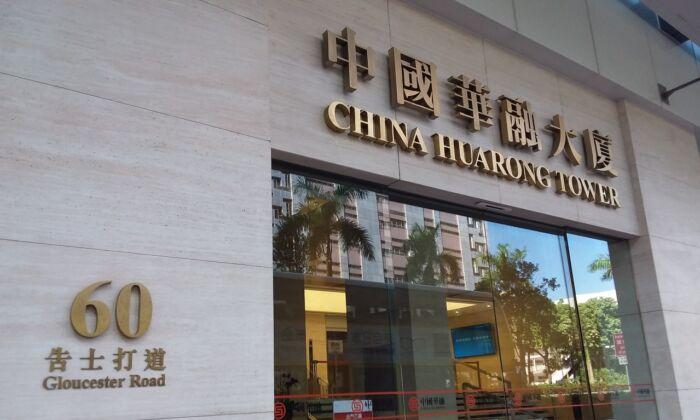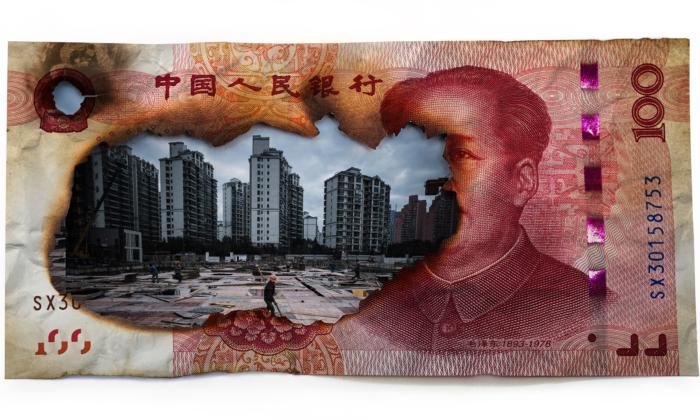Financial turmoil at a Chinese state-owned financial firm could make foreign investors reevaluate their risk tolerance for Chinese corporate bonds.
One of China’s four massive asset management companies created around the turn of the century, China Huarong Asset Management Co., has been speculated to be on the verge of insolvency.
As one of China’s critical “bad banks” set up to buy toxic loans from the balance sheets of the country’s commercial banks, how Huarong’s ongoing issues are resolved—or not—by the regime in Beijing will have key implications for Chinese financial markets.
Huarong, which owes more than $42 billion in bonds outstanding, spooked investors after it didn’t release its 2020 earnings and financial statements on time. The company also temporarily suspended trading of its shares on April 1.
Risk Reset?
The company’s difficulties have cast a dark cloud over China’s financial markets this month. And the CCP’s action—or inaction—could reset how global investors perceive risk in Chinese bond investments going forward.Huarong isn’t a bank, so in theory, its collapse would be less catastrophic than that of a major bank. And its investors are Chinese and foreign institutions, not individual retail investors. The company’s foreign investors include U.S. investment bank Goldman Sachs, foreign private investment funds, and sovereign wealth funds. Huarong’s Hong Kong-listed stock had dropped 67 percent since its 2015 IPO through the end of March, before trading was halted.
Ordinarily, a private company such as Huarong would follow the “market-oriented” approach that Beijing has laid out: demanding capital from existing investors, raising new capital from strategic investors, and if none of this is feasible, then restructure or declare bankruptcy.
But Huarong isn’t a regular private company. It’s controlled and managed by the central government, under the Ministry of Finance, and its mission is to acquire, manage, and wind down toxic assets from the Industrial and Commercial Bank of China.
In short, Huarong serves a critical function, both practical and symbolic.
Government Support
The timing of Huarong’s difficulties is also less than ideal.China is seen by mainstream foreign investors as a beacon of economic revival post-CCP virus pandemic. A ton of foreign cash has flowed into the Chinese debt markets in recent months. The loss of confidence from a sudden collapse of a state-controlled financial giant would shake that confidence to the core.
But there are signs that Beijing may yet step in this time.
On April 16, the China Banking and Insurance Regulatory Commission said that Huarong has ample liquidity, and is working with its auditor to complete its annual report as soon as possible. The statement of support helped to lift the price on Huarong’s dollar-denominated bonds.
Also on April 16, Bloomberg reported that Huarong had wired funds to repay a yuan-denominated bond maturity on April 18. This has eased immediate concerns somewhat, although the firm has other bonds coming due in the near future.
Perhaps the CCP has determined that Huarong is indeed too big to fail.
If Huarong becomes insolvent, the loss of confidence in the Chinese corporate bond market would hurt portfolios around the world. Recent foreign fund flows into the Chinese bond market have given many international investors exposure to Chinese corporate credit.
Chinese companies make up a chunk of the Bloomberg Barclays EM USD Corporate bond index, and China is a top-five issuer by country within the all-important Bloomberg Barclays Global Aggregate bond index, the main index used by globally diversified bond funds and ETFs.






Friends Read Free